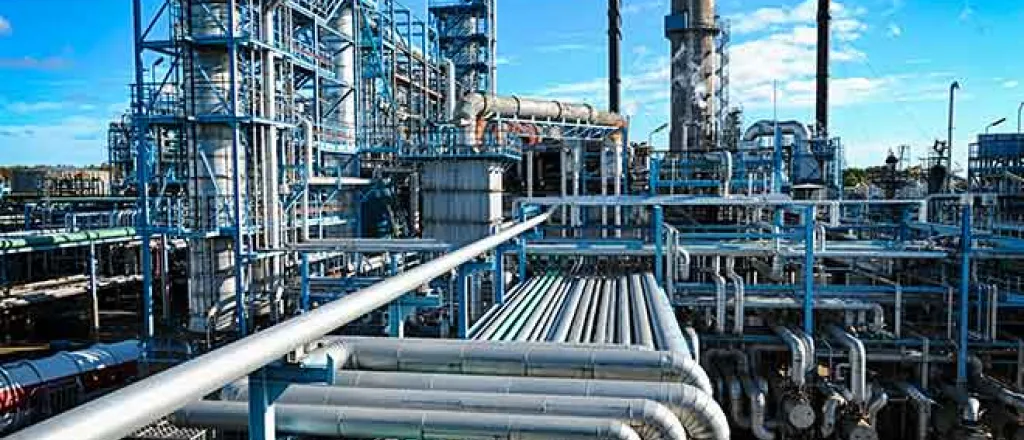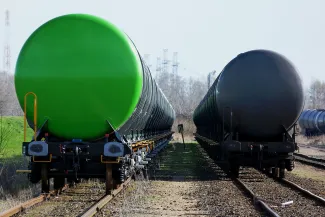
Colorado among states that could be hardest hit by Trump tariffs on Canadian oil
Price hikes from President Donald Trump’s imposition of wide-ranging tariffs on imports from Canada and Mexico could be felt more acutely in Colorado than in many other states.
Colorado’s only oil refinery, located in Commerce City and operated by Suncor Energy, based in Alberta, Canada, accounts for about 40 percent of the state’s market for refined petroleum products, and processes crude oil from several regions, including northern Alberta’s controversial tar sands fields.

© iStock - Istvan Balough - 1075007640
Canadian crude oil made up nearly a quarter of the total processed by U.S. oil refineries in 2023, and the majority of those imports flow to states in the upper Midwest and Rocky Mountains that supply nearly all of the rest of the gasoline, diesel and other fuel products consumed in Colorado. Canadian oil imports surged to record highs in early January upon reports that Trump planned to follow through on his threats to impose a 25 percent tariff upon taking office.
Hours before the measures were to take effect Saturday, Trump appeared to float a reduced tariff of 10 percent on at least some oil imports during an Oval Office press availability Friday, but any higher input costs are likely to translate soon into higher fuel prices for consumers across the central U.S.
“Folks in Texas probably won’t see an increase due to tightened Canadian supply,” said Skyler McKinley, regional public affairs director for AAA, the travel information nonprofit. “(But) the Rockies, the Midwest and the Great Lakes region are disproportionately reliant on Canadian exports.”
If the 25 percent tariff is applied to crude oil, McKinley said, “I would anticipate you could see increases in prices between 10 cents and a quarter.”
Representatives for Suncor didn’t respond to requests for comment Friday. The Canadian oil giant has operated the Commerce City refinery — a notorious source of air pollution with a long history of regulatory violations and equipment failures — since 2005.

Grier Bailey, director of the Colorado Wyoming Petroleum Marketers Association, which represents fuel suppliers and gas stations in both states, declined to speculate on the possible price impacts of the tariffs, which he said would be uneven across different suppliers. But he called Suncor “a foundational partner to Colorado.”
“It’s important that if low energy prices are a priority for families and a goal of the federal administration, the inputs to make fuel are as cost effective as possible,” Bailey wrote in an email.
Trump, who won election to a second term thanks in part to a wave of voter dissatisfaction with the rising cost of living, bluntly dismissed concerns Friday that his tariff plan would lead to widespread price hikes.
“There could be some temporary, short-term disruption, and people will understand that,” Trump told reporters at the White House.
McKinley noted that despite what many voters tend to think, the federal government typically has little power to directly influence gas prices, which are instead determined by “supply, demand, input, output — everything you learned about in freshman level economics.”
“There’s one exception to that, and it’s tariffs,” he said. “We know that if the president uses his or her authority to enact tariffs on energy imports, the price that you pay at the pump, and for a plane tickets and for everything else, will go up. So this is the one area where the president actually does influence gas prices, and it’s mostly to make them more expensive.”
Colorado Newsline is part of States Newsroom, a nonprofit news network supported by grants and a coalition of donors as a 501c(3) public charity. Colorado Newsline maintains editorial independence. Contact Editor Quentin Young for questions: info@coloradonewsline.com.















